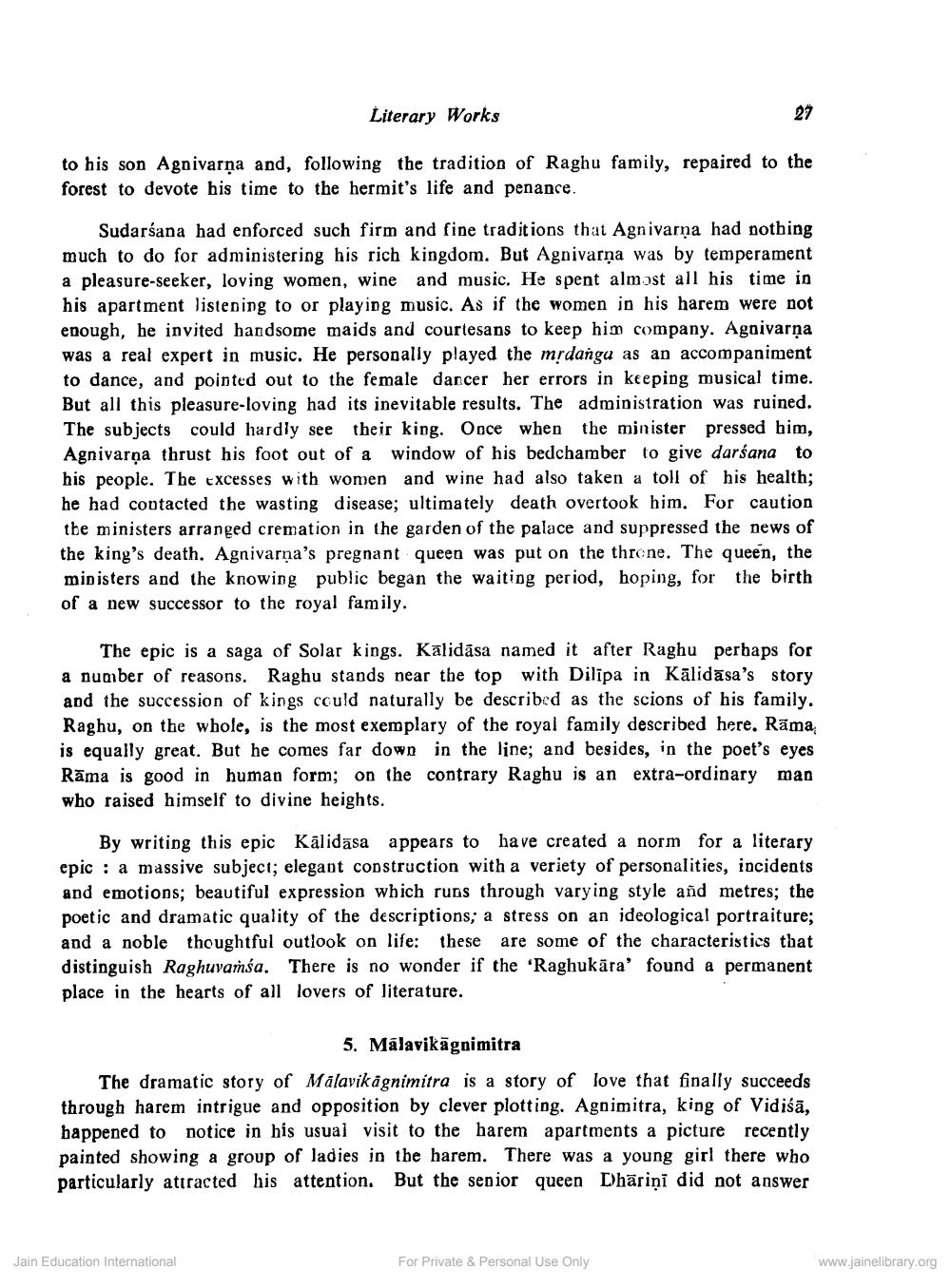________________
Literary Works
to his son Agnivarna and, following the tradition of Raghu family, repaired to the forest to devote his time to the hermit's life and penance.
27
Sudarsana had enforced such firm and fine traditions that Agnivarna had nothing much to do for administering his rich kingdom. But Agnivarna was by temperament a pleasure-seeker, loving women, wine and music. He spent almost all his time in his apartment listening to or playing music. As if the women in his harem were not enough, he invited handsome maids and courtesans to keep him company. Agnivarna was a real expert in music. He personally played the mṛdanga as an accompaniment to dance, and pointed out to the female dancer her errors in keeping musical time. But all this pleasure-loving had its inevitable results. The administration was ruined. The subjects could hardly see their king. Once when the minister pressed him, Agnivarna thrust his foot out of a window of his bedchamber to give darśana to his people. The excesses with women and wine had also taken a toll of his health; he had contacted the wasting disease; ultimately death overtook him. For caution the ministers arranged cremation in the garden of the palace and suppressed the news of the king's death. Agnivarna's pregnant queen was put on the throne. The queen, the ministers and the knowing public began the waiting period, hoping, for the birth of a new successor to the royal family.
The epic is a saga of Solar kings. Kalidasa named it after Raghu perhaps for a number of reasons. Raghu stands near the top with Dilipa in Kalidasa's story and the succession of kings could naturally be described as the scions of his family. Raghu, on the whole, is the most exemplary of the royal family described here. Rama is equally great. But he comes far down in the line; and besides, in the poet's eyes Rama is good in human form; on the contrary Raghu is an extra-ordinary man who raised himself to divine heights.
By writing this epic Kalidasa appears to have created a norm for a literary epic a massive subject; elegant construction with a veriety of personalities, incidents. and emotions; beautiful expression which runs through varying style and metres; the poetic and dramatic quality of the descriptions; a stress on an ideological portraiture; and a noble thoughtful outlook on life: these these are some of the characteristics that distinguish Raghuvansa. There is no wonder if the 'Raghukara' found a permanent place in the hearts of all lovers of literature.
5. Malavikägnimitra
The dramatic story of Malavikagnimitra is a story of love that finally succeeds through harem intrigue and opposition by clever plotting. Agnimitra, king of Vidiśā, happened to notice in his usual visit to the harem apartments a picture recently painted showing a group of ladies in the harem. There was a young girl there who particularly attracted his attention. But the senior queen Dhariņi did not answer
Jain Education International
For Private & Personal Use Only
www.jainelibrary.org




